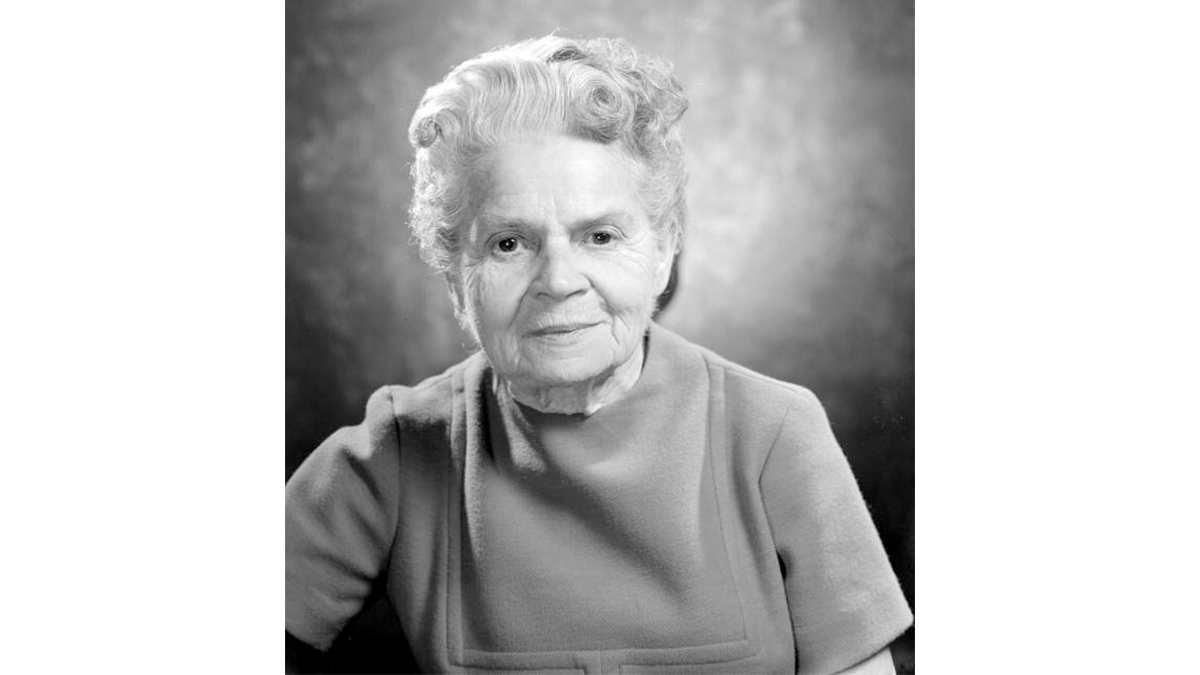225 years of Tar Heels: Irene Dillard Elliott and Anna Forbes Liddell
Irene Dillard Elliott and Anna Forbes Liddell were the first women to earn doctoral degrees at UNC-Chapel Hill.

 Editor’s note: In honor of the University’s 225th anniversary, we will be sharing profiles throughout the academic year of some of the many Tar Heels who have left their heelprint on the campus, their communities, the state, the nation and the world.
Editor’s note: In honor of the University’s 225th anniversary, we will be sharing profiles throughout the academic year of some of the many Tar Heels who have left their heelprint on the campus, their communities, the state, the nation and the world.
Up until 1924, no woman had ever received a doctoral degree at Carolina. That year Irene Dillard Elliott and Anna Forbes Liddell changed that never to a first.
Elliott already had degrees from Randolph-Macon Woman’s College (now Randolph College) in Virginia and the University of South Carolina before coming to Chapel Hill. In 1924, she earned her Ph.D. in English, writing a dissertation on the history of literature in South Carolina. She returned to USC, where she collected another ‘first,’ as the first dean of women in the school’s history. Years after her retirement, she returned to the English faculty when the school lost teachers to World War II. She remained on faculty another 18 years, inspiring the department’s Irene D. Elliott Award for Outstanding Teaching.
Liddell received her bachelor’s degree from Carolina in 1918, and then a master’s degree at Cornell, before returning to UNC-Chapel Hill, where she earned a Ph.D. in philosophy in 1924. Her dissertation, “The Logical Relationship of the Philosophy of Hegel to the Philosophies of Spinoza and Kant,” was advised by another notable philosopher and Tar Heel — Horace Williams. She taught first at Chowan College in Murfreesboro, North Carolina, and then at Florida State College for Women (now Florida State University), where she was head of the Department of Philosophy and Religion from 1931 to 1951. She retired in 1962.
They were not only game changers in higher education, but they also had lasting impacts on the social and cultural worlds around them. Elliott founded the South Carolina chapter of the Daughters of the American Revolution and created a scholarship at a children’s home established by DAR in upstate South Carolina before she died in 1978. Liddell was an active suffragette, known for her feminism and fearless advocacy. One year before her death, she attended a 1978 rally supporting the Equal Rights Amendment in a wheelchair, openly criticizing the Florida lawmakers who’d failed to ratify it.
In 2016, the University announced that it would rename need-based, undergraduate awards and graduate fellowships to honor 21 of Carolina’s notable ‘firsts’ — including Elliott and Liddell.




